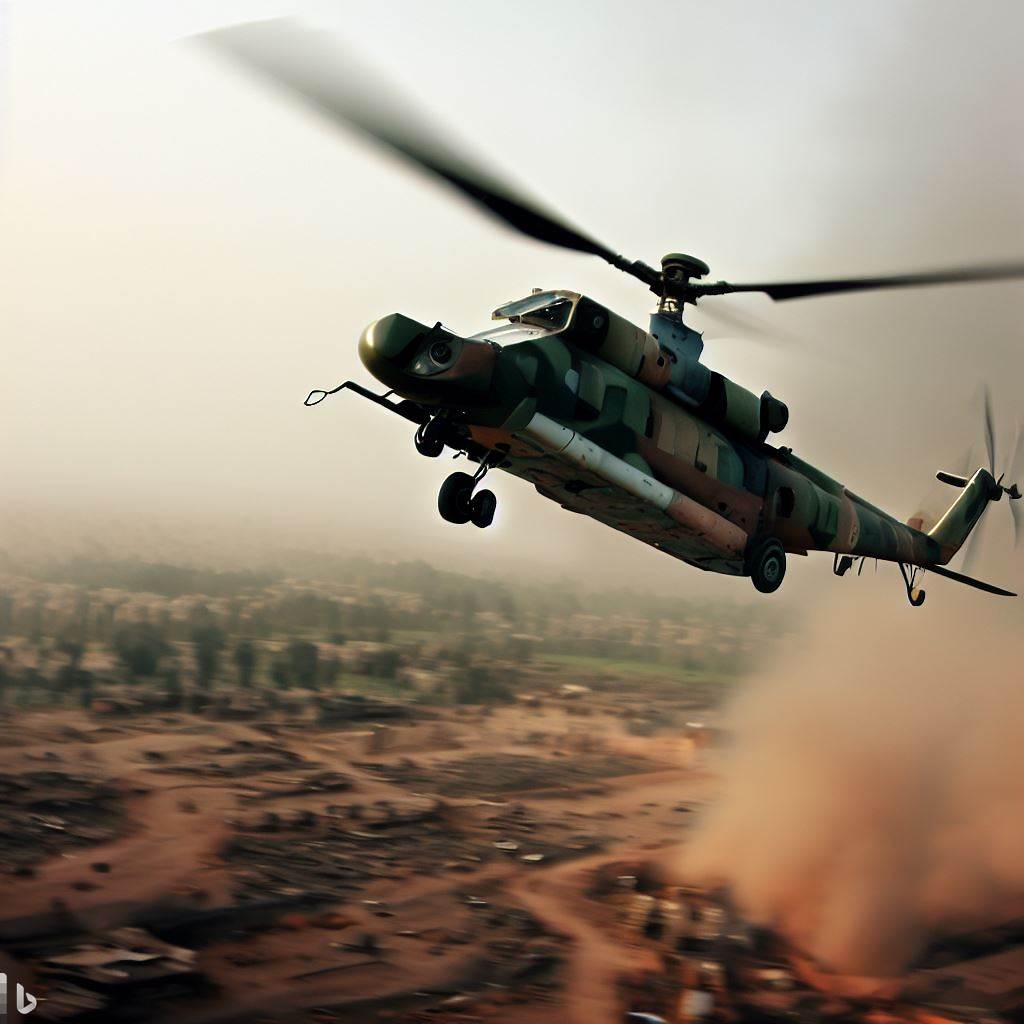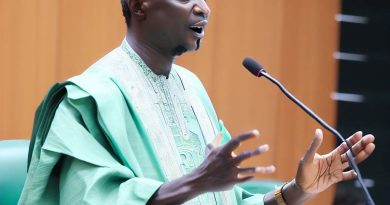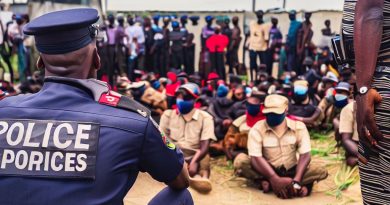Challenges and Triumphs: The Nigerian Military Story
Last Updated on August 12, 2023
Introduction
Welcome to an exploration of the Nigerian Military Story. A tale packed with twists, challenges, and triumphs that unfold vividly across Nigeria’s history. Our narrative focuses primarily on the military’s formation, growth, and resilience.
First, we’ll delve into the origins, a time when Nigeria stood on the brink of self-realization. A nascent force was birthing amidst the tumultuous winds of independence.
Next, we’ll chart the military’s evolution through coups, civil war, and internal conflicts. Each event sharpened the force’s determination, even in the face of daunting odds.
Finally, we’ll showcase the triumphs. From peacekeeping missions abroad to recent victories against insurgencies at home, these successes reflect the military’s enduring spirit.
Together, we’ll navigate the Nigerian military’s arduous journey, appreciating the complexity and resilience of this institution. Stay with us, as we unravel a story of endurance, grit, and undying patriotism.
Challenges Faced by the Nigerian Military
The Nigerian military has faced several challenges in its quest to provide security for the nation. Some of these challenges include:
- Inadequate funding: The Nigerian military has been plagued by inadequate funding over the years. This has resulted in a lack of essential equipment and training needed to tackle security challenges.
- Poorly equipped personnel: The Nigerian military personnel are often poorly equipped for the tasks at hand. This ranges from inadequate weapons to poor communication systems.
- Terrorism: The rise of terrorism in Nigeria has posed a significant challenge to the military. Boko Haram, for instance, has carried out several attacks in the country, resulting in the loss of lives and property.
- Internal sabotage: The Nigerian military has been plagued by internal sabotage from some of its personnel. This ranges from selling weapons to terrorists to leaking sensitive information to the public.
- Civilian-military relations: The Nigerian military has often been accused of a lack of professionalism in handling civilians. This has resulted in several instances of abuse of human rights.
The effects of corruption on the Nigerian military cannot be overstated. Corruption has eaten deep into the military system, resulting in several setbacks.
Some of these setbacks include
- Embezzlement of funds: Funds meant for the provision of equipment and training are often embezzled by top military officials, leaving lower-ranking personnel poorly equipped and trained.
- Compromise of security: Corrupt military personnel often compromise security by leaking sensitive information to criminal elements.
- Reduced morale: Corruption eats deep into the morale of honest military personnel who are demotivated by seeing their corrupt colleagues get away with their crimes.
Examples of major setbacks experienced by the Nigerian military include
- The 2014 Chibok Girls kidnapping: The Nigerian military was widely criticized for its handling of the kidnapping of over 200 schoolgirls by Boko Haram in Chibok. The military failed to rescue the girls for over two years, resulting in their marriage to terrorists.
- The 2021 attack on the Nigerian Defence Academy: In August 2021, gunmen attacked the Nigerian Defence Academy in Kaduna, killing two officers and abducting another. This was a significant setback for the Nigerian military as the Defence Academy is supposed to be one of the most secure military installations in the country.
- The 2021 Boko Haram attack on Geidam: In April 2021, Boko Haram attacked the town of Geidam, killing several people and destroying property. The Nigerian military was criticized for its poor response to the attack.
In fact, the Nigerian military has faced several challenges over the years, ranging from inadequate funding to internal sabotage.
Corruption has also eaten deep into the system, resulting in several setbacks.
It is necessary for the government to tackle these challenges head-on to ensure that the Nigerian military can effectively perform its duties of providing security for the nation.
Read: Military Influence on Nigerian Politics: A Deep Dive
The Triumphs of the Nigerian Military
The Nigerian military has had its fair share of challenges in the past, but it has also experienced triumphs that have been instrumental in shaping the country as it is today.
These triumphs are evidence that with determination and a drive to succeed, the Nigerian military can overcome any obstacle in its path.
Let’s highlight some of the successes of the Nigerian military and demonstrate how it tackled various challenges to achieve positive outcomes.
Successes of the Nigerian Military
- Peacekeeping in Liberia and Sierra Leone
- Successful elimination of Boko Haram insurgents
- Participation in the United Nations peacekeeping missions in Sudan, Mali, and Congo
- The Nigerian Navy’s success in reducing piracy in the Gulf of Guinea
- Successful containment and eradication of Ebola virus in the country
The Nigerian military’s effectiveness led to participation in UN peacekeeping missions in Sudan, Mali, and Congo.
They successfully eliminated Boko Haram insurgents, restoring calm and reducing their activities. The Nigerian Navy reduced piracy incidents in the Gulf of Guinea, boosting commerce and trade.
The military contained and eradicated the Ebola virus outbreak, preventing a catastrophe with international partners.
Read: Influential Leaders of the Nigerian Government: A Review
Tackling Challenges
The Nigerian military has faced numerous challenges in its efforts to achieve its objectives, but it has always risen to the occasion.
Some of the challenges it has faced include inadequate funding, insufficient equipment, and inadequate training for personnel. However, the Nigerian military has tackled these challenges head-on and achieved positive outcomes.
One of the primary challenges the Nigerian military faced in its fight against Boko Haram was inadequate funding.
The government was slow to provide the necessary funds and equipment needed to tackle the insurgency. However, the Nigerian military did not let this hinder its efforts. It quickly improvised and sourced for alternative funding and equipment, which significantly boosted its operations.
Inadequate training for personnel has also been a significant challenge for the Nigerian military. The military responded with a massive training program, providing specialized training to thousands of troops.
This training significantly boosted their capabilities, making the military more effective against emerging security threats.
Positive Outcomes
The Nigerian military’s successes in the face of numerous challenges have yielded positive outcomes for the country. Some of these outcomes include:
- Restoration of peace and stability in Liberia and Sierra Leone
- Reduction of piracy in the Gulf of Guinea, boosting commerce and trade in the region
- Containment and eradication of the Ebola virus in the country, preventing a catastrophic outbreak
- Weakening of Boko Haram’s hold on the north-eastern region of Nigeria
- Increase in the capabilities of the military through training programs
In summary, the Nigerian military faced challenges, but triumphs showcase its capabilities in tackling security threats.
Successes highlight their effectiveness in maintaining peace and stability both domestically and internationally.
While challenges persist, the military’s achievements prove obstacles can be overcome with the right approach.
Read: Career Opportunities in the Nigerian Military Profession

The Role of International Support
In recent years, the Nigerian military faced challenges from terrorist groups, but international allies provided support.
With their assistance, Nigeria made significant strides. This chapter discusses the role and areas of international support in enhancing the Nigerian military.
The Nigerian government has received support from a number of international allies in its efforts to combat terrorism and insurgency.
This support has come in a variety of forms, including equipment, training, intelligence sharing, and financial aid.
The main role of international support has been to fill the gaps in the Nigerian military’s capabilities. For example, many of the country’s military helicopters and other equipment are outdated and in need of replacement.
International allies have provided Nigeria with modern, state-of-the-art equipment that has helped to improve its military capabilities and enable it to better combat terrorism.
Read: Top 10 Highest Paying Professions in Nigeria: 2023 Edition
Areas Where International Support Has Helped
The areas in which international support has helped the Nigerian military are numerous. Some of the most notable areas of assistance include:
- Equipment and Technology: As mentioned above, various countries enhance Nigeria’s military capabilities through advanced equipment and technology.
- Training: International partners, including the United States, France, and the United Kingdom, provide training to the Nigerian military. This training has helped to improve the skills and effectiveness of Nigerian soldiers.
- Funding: International support has also come in the form of financial aid. The United States funds Nigeria through its Foreign Military Financing program, supporting counterterrorism efforts.
- Intelligence Sharing: International allies share intelligence with Nigeria’s military, enhancing understanding of threats and operation planning.
Specific Countries That Have Provided Assistance
Several countries have provided assistance to Nigeria’s military in its fight against terrorism. Some of the most notable include:
- The United States: The US has been one of Nigeria’s key allies in the fight against terrorism, and has provided significant funding, intelligence sharing, and training to the country’s military.
- France: France has also provided training and equipment to Nigeria’s military.
- The United Kingdom: The UK has provided training and technical assistance to the Nigerian military, particularly in the area of intelligence gathering and analysis.
- China: China has provided financial aid and equipment to Nigeria’s military, including drones and other technology.
- Germany: Germany has provided specialized training to Nigerian soldiers in the areas of bomb disposal and counterinsurgency.
Basically, the role of international support in enhancing the Nigerian military cannot be overstated. Key allies’ assistance is crucial in Nigeria’s fight against terrorism and insurgency.
Progress reflects the significance of international partnerships in global security challenges.
Read: Nigerian Government and Military: A Comparative Study
Conclusion
The Nigerian military faced significant challenges, including corruption and inadequate training and resources.
They successfully combated Boko Haram and participated in peacekeeping. Addressing issues like corruption and resource scarcity needs government and military leadership commitment.
Despite challenges, the Nigerian military’s adaptability and improvement inspire optimism. With proper support, progress will ensure national safety.
Overall, the Nigerian military has come a long way, but there is still work to be done. With continued effort and investment, the future looks bright for this important institution.


